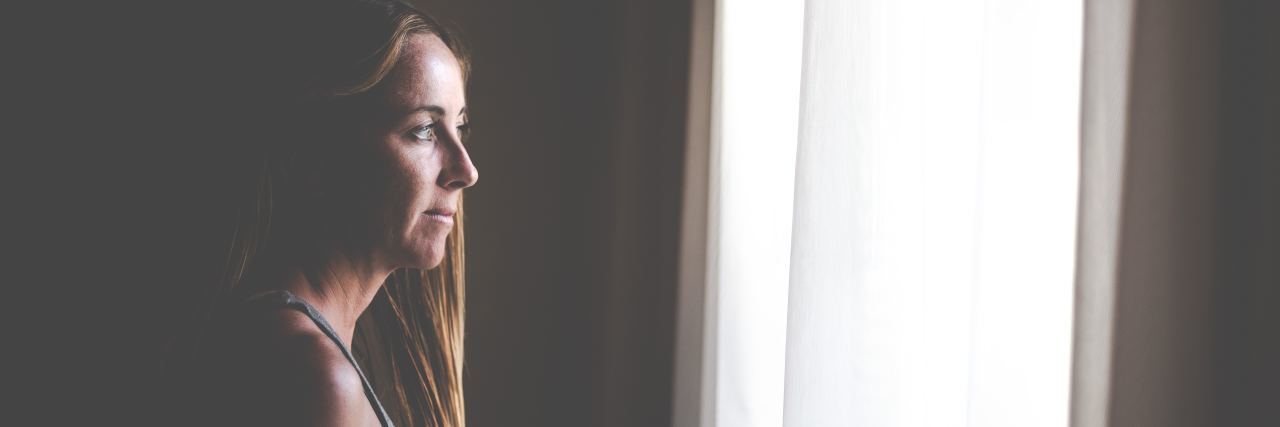Why My Childhood Emotional Neglect Is Actually 'Abuse by Omission'
Editor's Note
If you have experienced emotional abuse, the following post could be potentially triggering. You can contact the Crisis Text Line by texting “START” to 741741.
Until today, I’d never heard the phrase “abuse by omission.” But now I’ve heard it, I feel like I’ve come home.
It’s difficult to apply the word “abuse” to my childhood. It feels disrespectful to my parents, who truly did the best they knew. There was no physical abuse — in fact, my pacifist parents rarely smacked their children and when they did, it was well within the bounds of “normal.” We weren’t sexually abused; Well, I can’t speak for my siblings, but I know without a doubt I was not. And we weren’t verbally abused. Our home wasn’t full of yelling, screaming or conflict (until things shattered apart). On the contrary, conflict was so abhorrent to my mother, she avoided it at all costs. We were a middle-class family with ample access to food, clothing, health care and education.
On the face of it, I had an idyllic childhood. Except it wasn’t.
Emotionally, we were neglected. Not intentionally or maliciously; my mother’s inability to cope with her own feelings created an expectation of emotional suppression, where we learned our own feelings were invalid and everyone else comes first. My father was far more comfortable with emotions but was, for the most part, largely absent due to work commitments. And when he was there, like many men I know, his needs came first. He’d do anything for anyone if asked, but his capacity to recognize what was needed was lacking or limited. Both my parents were highly sensitive — prone to anxiety and depression. Both had high expectations — my father expected a lot from himself, and my mother expected a lot from everyone else. It isn’t surprising that together they raised three hypersensitive children with no healthy coping mechanisms to deal with the overwhelming emotions to which highly sensitive people are predisposed. This isn’t to say our parents didn’t love or care for us — of course they did. But outward expression of love was entirely absent.
There was no hugging, no “I love you,” no warmth.
It wasn’t until I was married with my own three little babies that I came to realize how much my parents loved us, and how much my mother’s dysfunctional behavior came from a place of love. Her incessant criticism of anything and everything was an attempt to mold her children into adults capable of navigating the harsh world she’d grown up in. This backfired badly. My siblings have their own stories to tell, but for me the manifestation of abuse by omission resulted in my inability to recognize or regulate emotions. To compensate, I sought external validation by becoming what other people wanted me to be — confident, capable, responsible, sensible, caring, kind, resilient, mature. Which is great on the surface, but it really was only surface deep. My real emotions were numbed into oblivion and I had no idea how to be myself. I feel uncomfortable with the word codependent. It’s a label I find repugnant and insulting. Yet, it’s important for me to accept that many of the symptoms of codependency are apparent in my behavior:
Low self-esteem, people-pleasing, poor boundaries, reactivity, caretaking, control, dysfunctional communication, obsessions, dependency, denial, problems with intimacy, painful emotions.
Actually – that’s 12/12. And while the perfectionist in me loves a perfect score, it’s not a test I particularly wanted to ace.
My long history of anxiety, depression and eating disorder behaviors are well-documented in my blog. Sinking to the depths of self-harm and suicidal ideation came much later on. But it was only when I cracked open and fell apart I began to heal. Until then, decades of emotional suppression poisoned me from the inside out. It was a wound that needed lancing and the process has been very painful. For a long time, I felt there was something deeply wrong with me — that I had no right to be in so much emotional pain as I hadn’t grown up with huge trauma. There was no big event to look back on and say, “See? That’s why you’re broken!” All I could see when I looked back was a miserable child who couldn’t understand the misery and had no reason to be so ungrateful.
I’ve long since forgiven my parents for their faulty parenting — they too were products of their own upbringing and like all (well, most) parents throughout history, they loved their kids and did the best they knew. My job now is to continue the recovery process I began three years ago and to find that emotionally neglected little girl, take her by the hand and teach her she’s lovable.
I need to do, for myself, what I’ve tried to do for everyone else – accept.
Follow this journey on the author’s blog.
Photo by Marcel Fuentes on Unsplash

